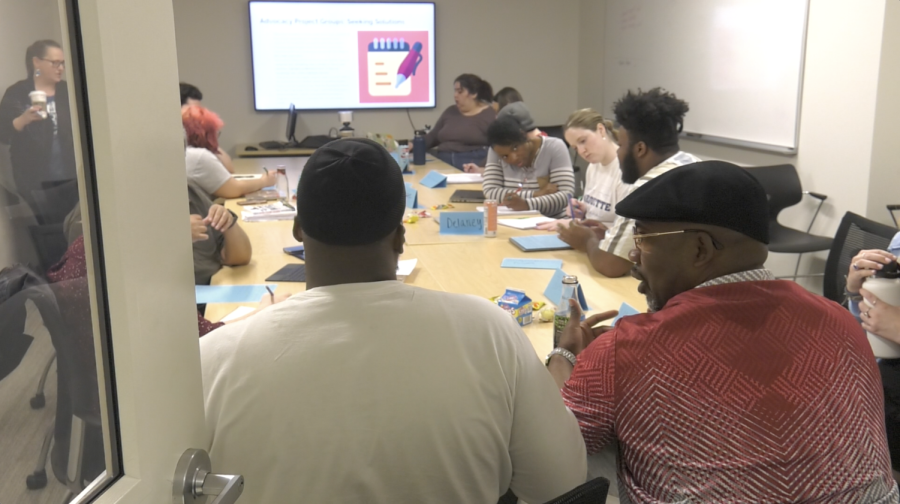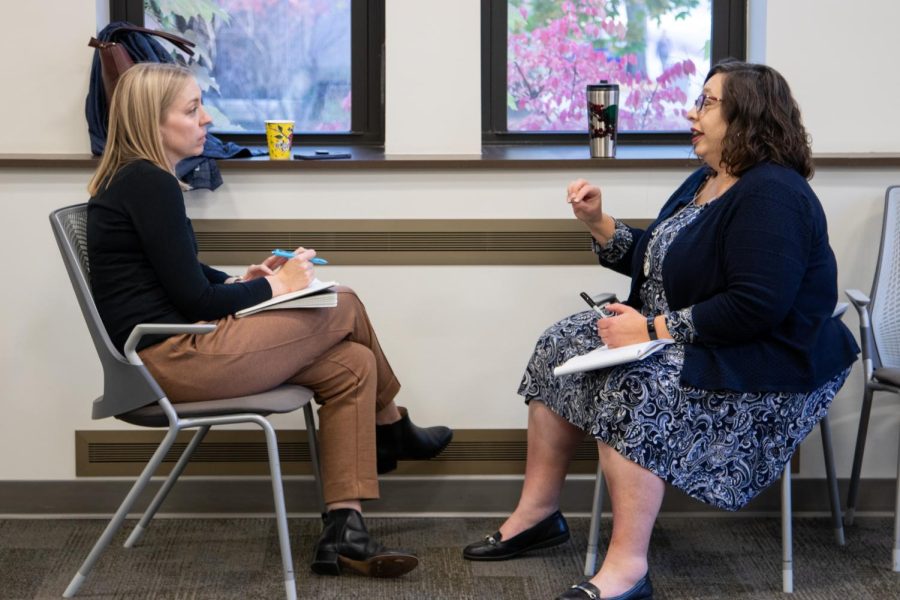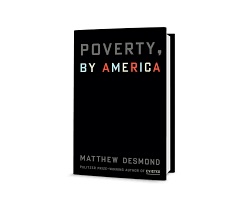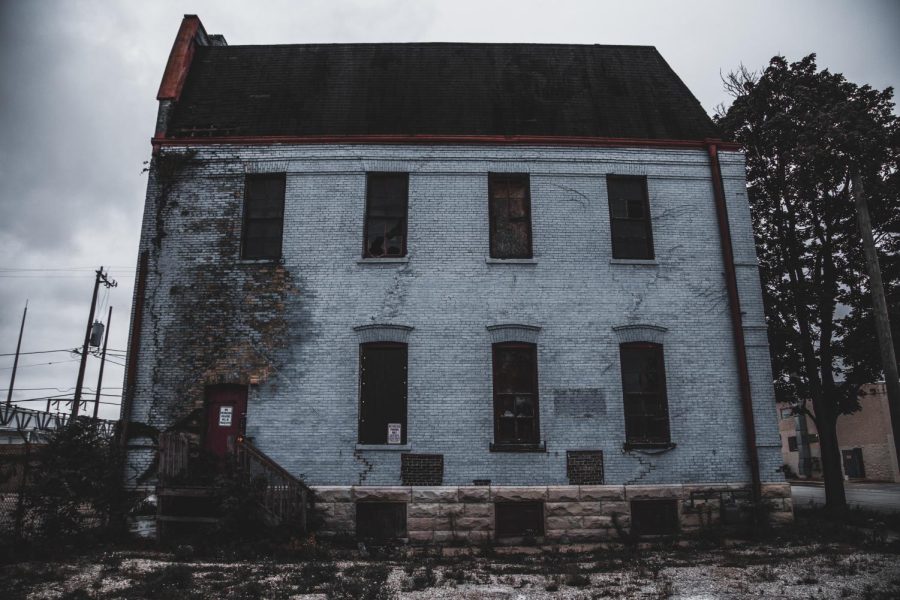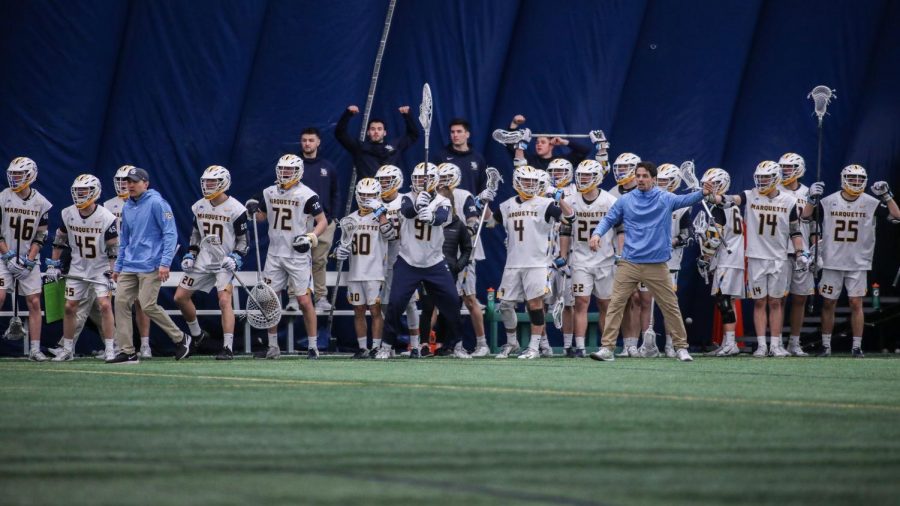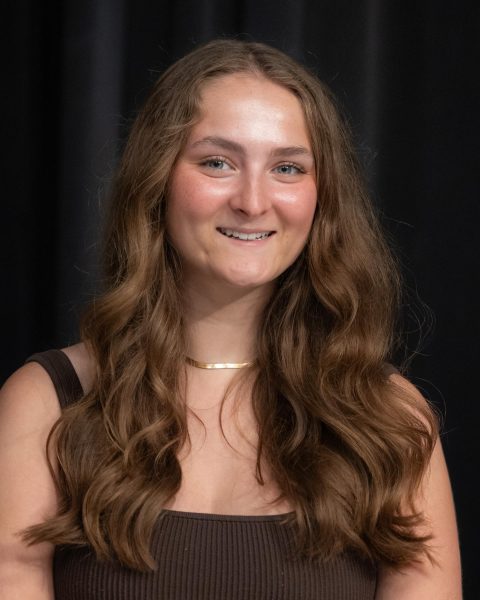Dante Cottingham, formerly incarcerated, takes classes through Marquette’s Education Preparedness Program after being introduced to the program by one of his friends. After spending 27 years in prison, Cottingham said one of the things he always wanted to do was go to college. Although he said he was able to take some classes in prison, he always wanted to experience being in the classroom and on campus.
“I’m genuinely lucky to be here. I mean- free. I had a big sentence, I was going to die an old man in prison, so I got lucky that the politics blew my way and at the right time and I was free and I’ll never forget that,” Cottingham said.
The EPP allows recently incarcerated and released people to take classes and receive academic support and resources. For the former incarcerated individuals, they can complete the credit-bearing courses for free.
James Watkins takes classes through EPP and said his biggest takeaway from the program is being on a level playing field to share his ideas and receive others’ perspectives as well. Watkins has taken three classes within the program so far.
“All my teachers have been amazing, I have experienced nothing but teachers who accept the human experience as well as just good human beings to everybody,” Watkins said. “I have had a good experience at Marquette. That’s my own though, nobody else’s but my experience.”
Melissa Gibson, assistant professor in the College of Education, is currently in her first semester teaching for EPP. She said she started teaching for the program because she heard about it from a colleague and because of the content that is taught within the course.
Gibson said the content is focused on educational justice and change toward racial justice in schools. Some of the classes offered are African American History, A History of Native America and Creative Writing: Poetry.
“The content of the course one is valuable for folks who have lived through or experienced our urban schools and schooling that is inequitable,” Gibson said. “The content itself is as one of the students was saying after class, she was like ‘this is my life story, you just gave me a language to describe something I’ve experienced.'”
Within EPP classes, Gibson said, is a diverse community of thinkers and learners. The class is a blend between degree-seeking students at Marquette and incarcerated individuals. Undergraduate students can apply to sign up for the class.
“You really never know how society is going to embrace you once you’ve done that amount of time. So to be embraced the way we’ve been embraced at Marquette, to me, was huge after my transition so it’s been a great experience,” Cottingham said.
The most interesting thing Cottingham has learned in Gibson’s class is the history of racism and how it enters the classroom.
Cottingham said he loves listening to other students in the class who have had entirely different life experiences from his and learning how they view the world.
Gibson said she is oftentimes “blown away” by the students’ willingness to share details and intimate information about their life stories. Last week, she said the class had a conversation that she originally thought would be simple when she asked: “Share your school story.”
That conversation starter Gibson said turned into an hour-long conversation of people sharing their life stories and how it alters their previous understanding of “education, identity, hopes and dreams.”
For Cottingham, his educational story was receiving his high school equivalency diploma while serving time in the Green Bay correctional institution. Cottingham went to prison at 17-years-old and dropped out of high school in the ninth grade, so one of his requirements in prison was to get his HSED.
In prison, Cottingham said is where he started to have dreams about furthering his education. Cottingham said he’ll never forget that receiving his high school diploma was supposed to be the end, since he was originally faced with a life sentence in prison.
“I remember how it feels to be stuck there and be in that place with no light and no opportunity, so I’ve lived my life every moment remembering that. I actually just bought a poster of Green Bay and put it on my wall … to be reminded of that, where I came from and the dreams that was there and how it felt. I never want to forget how it felt to have some gigantic dreams but be in a palace where you can’t realize them. I can realize them now. I’ve always got that perspective,” Cottingham said.
After getting time on his sentence reduced, Cottingham said he’s “genuinely lucky.” He said attending EPP classes allows him to be more comfortable and teaches him how to relate to people. Being released early has also contributed to Cottingham’s belief that nothing is impossible.
“Ain’t nothing impossible. It’s something I came out of prison believing because it was a miracle I even walked out of there, and there’s been other things that I’ve been blessed to experience since I’ve been home that fuel that belief: that ain’t no dream impossible. This is a big one,” Cottingham said.
To Watkins, he said Gibson’s classroom is great to be in because of how open, tolerative, dynamic and factual the class is.
“I’m amazed sometimes. I’m amazed that she speak(s) on certain topics and issues sometimes. I’m amazed that she just is as passionate as I am about it and she’s got a lot of information about it which helps, so it’s amazing. I love being in this class even if I didn’t do my homework, I still come,” Watkins said.
Cottingham said Gibson is creatively engaging and has no pretenses about her students. He said it’s nice that she genuinely wants to build a relationship with them while ensuring that they’re understanding the content.
Cottingham also mentioned it’s easy to tell Gibson is passionate about her job, and it rubs off into the class and adds to the energy and force of the conversations.
“This mixed group of students bring something out in one another and in me that makes this one of the richest teaching and learning spaces I’ve had at Marquette since I’ve been here,” Gibson said.
Being part of EPP, Gibson said has been overwhelmingly positive both in terms of the relationships forming within the classroom and also the environment being cultivated where everyone is open to feedback.
“I wanna see what I can do. I’m here to see what my full potential is and the story is still being written,” Cottingham said.
Timothy Littau contributed to this report.
This story was written by Julia Abuzzahab. She can be reached at julianna.abuzzahab@marquette.edu or on Twitter @juliaabuz


